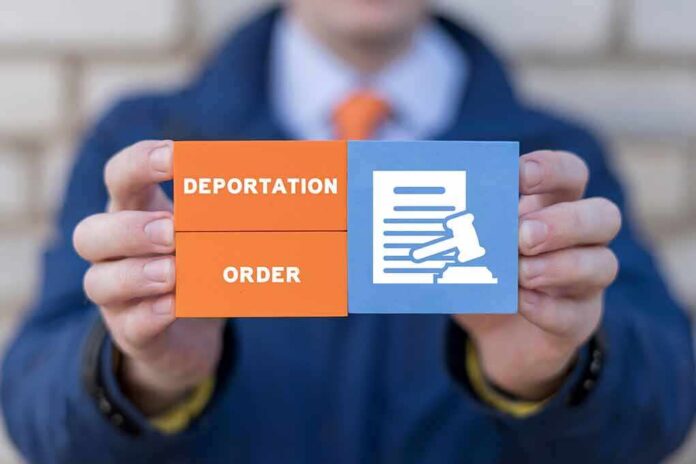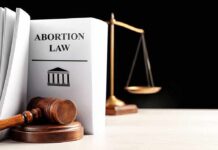The Trump administration’s potential move to deport American citizens to foreign jails stirs controversy, raising questions about its impact on civil rights and constitutional protections.
Quick Takes
- Trump is contemplating sending “homegrown criminals” to foreign prisons.
- Critics argue it may infringe upon the constitutional rights of U.S. citizens.
- The legal precedent and Supreme Court rulings stand against such deportations.
- The implications of deporting without criminal evidence spark concerns.
Debate Surrounding the Policy Proposal
President Trump’s proposed policy to deport American citizens accused of violent crimes to foreign prisons has sparked wide-ranging discussions on legal and constitutional grounds. The notion emerged following his remarks that linked “homegrown criminals” to violent acts like hitting people with baseball bats. The administration has not yet addressed the policy’s alignment with due process and constitutional protections, leaving it open to public scrutiny.
Trump’s meetings with El Salvadoran President Nayib Bukele highlighted their cooperative efforts on prison construction, like the Terrorism Confinement Center (CECOT), where Trump suggests sending these individuals. This collaboration raises diplomatic concerns, juxtaposed against existing U.S. legal structures that demand due process.
Constitutional and Legal Ramifications
Legal experts have expressed concern over the potential violation of constitutional rights, particularly focusing on the 8th Amendment, which guards against cruel and unusual punishment. The precedent set by the Supreme Court against deportations without due process further complicates the plausibility of this policy. Historical uses of the Alien Enemies Act also require due process, strictly limiting how far the administration can push these boundaries.
A survey indicated that the majority of deportations to CECOT lack substantial evidence for violent offenses, with 75% having no criminal records. Legal challenges, like Kilmar Abrego Garcia’s wrongful deportation due to an administrative error, illuminate the serious consequences of such measures on individuals’ lives and rights. Although the Supreme Court mandated Garcia’s return, the El Salvadoran President refused compliance, underscoring a diplomatic impasse.
Implications on International Relations
The dialogue between Trump’s administration and foreign leaders, exemplified by encounters with President Bukele, hints at a broader strategy that could redefine U.S. constitutional safeguards in favor of international cooperation. The policy’s ramifications extend beyond individual rights, hinting at a potential shift in American diplomatic priorities. Critics argue that without clear legal standing, such proposals undermine both domestic legal traditions and international diplomatic standards.
Further complicating the issue, proposals like these exacerbate the challenges of respecting constitutional rights while maintaining secure international relationships. America’s foundational commitment to due process confronts emerging political narratives favoring public safety over individual liberties, leaving many questioning this potential shift in governance.
Sources:
- https://www.reuters.com/world/americas/trump-wants-deport-some-us-citizens-el-salvador-2025-04-14/
- https://www.cbsnews.com/news/trump-homegrown-criminals-foreign-prisons-cecot/
- https://www.newsmax.com/newsfront/trump-prisons-deportation/2025/04/15/id/1207018











